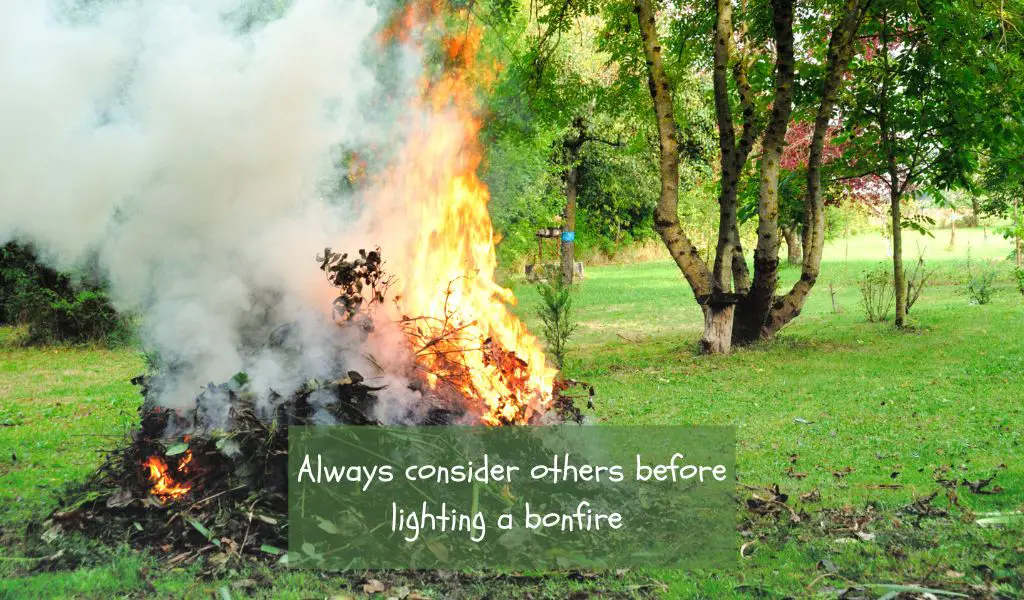Garden fires are a popular outdoor activity for many homeowners, providing an opportunity to burn garden waste, enjoy a cozy atmosphere, and spend quality time with friends and family.
However, it’s essential to consider local regulations and appropriate times to ensure that your garden fire doesn’t cause any inconvenience to your neighbors or harm the environment.
In this blog post, we will discuss the best time to have a garden fire and provide guidelines to ensure a safe and enjoyable experience.
The best time to have a garden fire is typically during the early evening, ensuring compliance with local regulations, and considering neighbors’ comfort. Choose days with favorable weather conditions, such as little to no wind, and prioritize burning dry, untreated wood or garden waste for a safe and enjoyable experience.
Check Local Regulations and Guidelines
Before planning a garden fire, it’s crucial to familiarize yourself with local regulations and guidelines.
These may vary depending on your location and could dictate the allowed hours for garden fires, the types of materials you can burn, and any required permits.
Some areas may have specific time restrictions, while others may follow general guidelines for noise or air pollution.

Consider the Time of Day
The time of day plays a significant role in determining the best time for a garden fire.
In general, early evening is often considered the most suitable time, as it allows for a pleasant outdoor experience without causing disturbance late into the night.
Additionally, the cooler evening temperatures and increased humidity can reduce the risk of fires spreading.
It’s essential to ensure that your fire is entirely extinguished before you retire for the night to avoid any potential hazards.
Be Mindful of Your Neighbors
When planning a garden fire, always be considerate of your neighbors.
Avoid burning during meal times or when they may be hosting outdoor gatherings, as smoke from your fire can be a nuisance.
Communicating your plans in advance can help you avoid conflicts and ensure that everyone enjoys their outdoor space.
If possible, consider inviting your neighbors to join in the fun, turning your garden fire into a social event.
Choose the Right Weather Conditions
The weather conditions are another critical factor to consider when planning a garden fire.
Avoid burning on windy days, as strong gusts can spread embers and make it difficult to control your fire.
Instead, opt for days with little to no wind and clear skies to ensure a safe and enjoyable experience.
Be aware of any local burn bans or air quality alerts, which may temporarily prohibit garden fires.
Burn Responsibly
To ensure a safe and eco-friendly garden fire, only burn dry, untreated wood or garden waste.
Avoid burning household waste, plastics, or treated wood, as these materials can produce toxic fumes and contribute to air pollution.
Keep a close eye on your fire, and always have a water source nearby to extinguish it if necessary.
Conclusion and final thoughts
In summary, the best time to have a garden fire depends on several factors, including local regulations, the time of day, weather conditions, and consideration for your neighbors.
Always prioritize safety and adhere to local guidelines to ensure a pleasant and responsible garden fire experience.
With proper planning and communication, a garden fire can be a delightful way to spend an evening outdoors and create lasting memories with friends and family.




